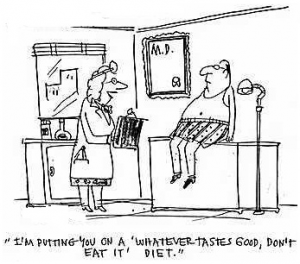| If heart disease is NOT strongly linked to high cholesterol, then why are so many people on statins? Statins are a trusted medicine by many for lowering cholesterol. They are the most widely prescribed medicines in the United States. The statin industry (and it is an industry) is valued at over $29 billion dollars. Sadly, it has been largely successful at making a profit and largely unsuccessful at reducing the risk of heart attack and of mortality risk among its users. Statins are used worldwide. The United Kingdom has been called the statin capital of Europe. It is estimated that 1 in 8 are taking this drug. But, are they a replacement for healthy living? At one physician’s talk that I attended at Overlake Hospital on cholesterol, the speaker opened with a joke: “I can’t get my patients to change how they eat, can you?” and all the doctors laughed heartily. The joke being, let’s set aside the idea of healthy change and take this pill. There is a good body of evidence pointing to the fact that taking cholesterol lowering medication has little to no effect on a person’s health. And, it does more harm than good. Rates of heart disease have not declined with the increased use of statins. Let’s talk about how statins work. You produce cholesterol in your body and you get some cholesterol from the foods that you eat. Statins reduce cholesterol by inhibiting an enzyme in the liver known as ‘HMG-CoA reductase’. This enzyme drives cholesterol production forward. By inhibiting this enzyme, the statin inhibits cholesterol production in the body. Are their side effects to inhibiting this enzyme? Yes. This enzyme is involved early on in a 25 step process to produce cholesterol, antioxidants and other cellular regulating substances. One of these is a very powerful antioxidant called coenzyme Q10. CoQ10 is present in virtually every cell in your body and the greatest concentration is found in your heart. Co Q10 plays two important roles in your mitochondria (your cellular energy power houses). It is a cofactor in the energy production that produces ATP (your cellular energy currency) and it acts as a potent antioxidant to keep the mitochondria healthy. When cell energy production decreases, cellular levels of free radicals and oxidative stress increase. So even though you may see your cholesterol go down, you are at the same time increasing free radicals and oxidative stress in your cells. Studies show that people taking a statin have a hard time reaping the positive effects of exercise. This is because statins interfere with the cells ability to increase mitochondrial density in their cells. Why is this important? If you are trying to get healthy by moving more and working out, your mitochondrial density will increase in response to this new athletic activity. Say you take up biking and you are tired and sore during the first week or two as you get used to the new activity. As you progress you will begin to build your endurance and aerobic capacity for the new sport; it gets easier because you are building your mitochondrial density and this increases your aerobic capacity for this activity. If you are on a statin, your ability to increase mitochondrial density is greatly inhibited. You will have a harder time building endurance, building aerobic capacity and maintaining your energy levels. I have worked with numerous patients who have seen significant weight gain, muscle fatigue and joint pain while on a statin. They aren’t relating it to the statin as much as to their weight gain and yet, this is all connected. With the fatigue and joint pain induced by the statin, you are tired and don’t feel like moving much, you will likely gain weight. 
Statins don’t just lower cholesterol, they have a systemic effect. Statins reduce the blood cholesterol that transports CoQ10 and fat-soluble antioxidants. We need cholesterol in our skin to activate vitamin D3 from sunlight. We need cholesterol to make our sex and adrenal hormones. We need it for neurotransmitter function in the brain. When LDL cholesterol is driven too low a lot of patients develop memory problems. How is this helping? A current patient was in the 97% percentile for heart attack risk. This patient’s risk isn’t related to total cholesterol or high LDL cholesterol. The risk was present because this patient had a very high number of small lipid particle size that are known to oxidize in the arteries and increase atherosclerosis and the triglyceride to HDL ratio was above 6.0. The doctor wanted to put this patient on a statin and that was about it. This patient didn’t have any weight to lose, so a statin had to be the answer. This patient had gone on and off statins for decades and each time without seeing much, if any, recovery in cholesterol or the risk profile. We worked together closely for four months and instituted an intense approach to diet, lifestyle and supplement therapy. Within four months EVERY number on this patient’s comprehensive lipid cholesterol test was within range. This patient no longer was in a risk category for heart attack. This patient didn’t have any weight to lose. The numbers didn’t recover because this patient dropped weight. In fact, this patient didn’t drop any weight. We simply addressed the underlying reasons that cholesterol is high in the first place: inflammation, oxidative stress and/ or an autoimmune condition. A statin isn’t the answer. Heart disease is NOT strongly inked to high cholesterol and there are too made side effects that may have a negative impact on your health. Figuring out the underlying cause and addressing it always the best approach. |
Leave A Comment